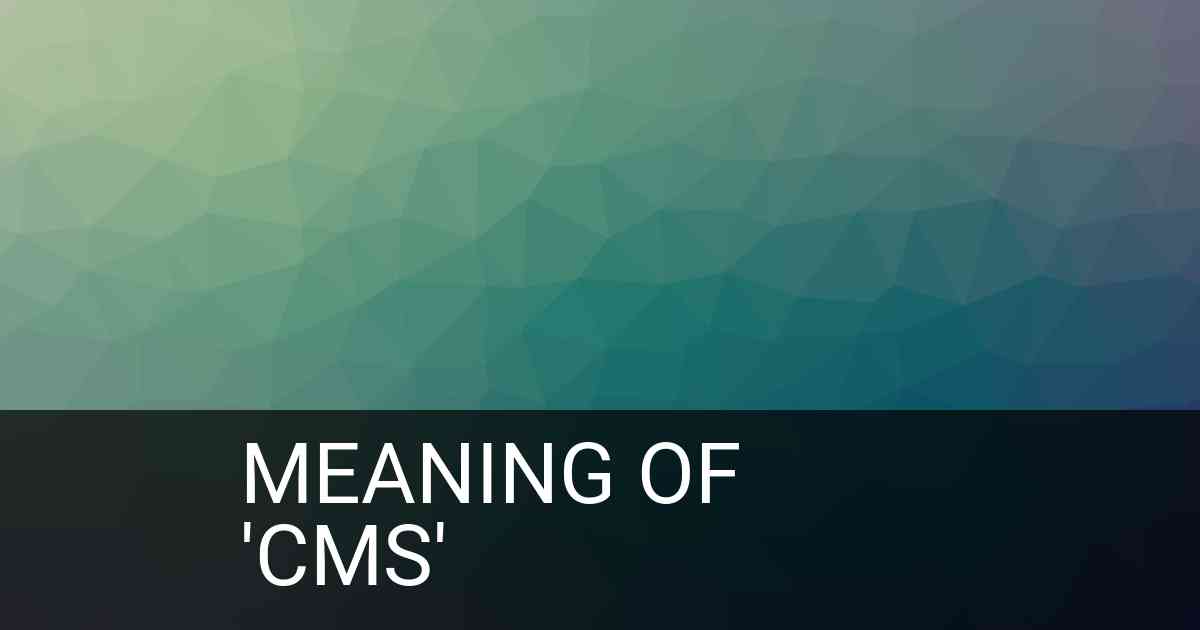
The meaning of ‘CMS’ in Blogging is ‘Content Management System’.
Meaning of ‘CMS’
Content management systems (CMS) are used by bloggers and website owners to manage their content. A CMS is a software application that helps users create, manage, and maintain digital content on the web. It provides an easy-to-use interface for the user to create, organize, and store digital content on the web.
A CMS allows users to easily manage their online blog or website without having to learn complex programming languages. The user can quickly add or edit posts, pages, images, videos and other types of digital media with just a few clicks. This makes it easier for them to keep their website up-to-date with fresh content.
The main purpose of a CMS is to make managing digital content more efficient. Without a CMS, the user would have to manually code each page and post in HTML or another language. With a CMS, the user can quickly create new posts using templates and drag-and-drop tools. This makes creating new content much faster and simpler than coding from scratch every time.
Additionally, a CMS makes it easier for users to optimize their websites for search engine rankings. This includes adding keywords and meta tags so that search engines can better understand what the site is about. Additionally, most CMS platforms provide analytics tools so you can track how your site is performing in terms of traffic and conversions.
When it comes to blogging specifically, “CMS” stands for “Content Management System.” Blogging requires frequent updates with new posts or pages that need to be optimized for search engine rankings as well as organized logically in order for readers to find them easily on the blog’s homepage or archives page. A good blogging platform should provide all these features while also allowing writers to customize their blogs with themes and plugins according to their individual needs.
All in all, Content Management Systems are essential tools for any blogger who wants an efficient way of managing his or her digital content on the web. It simplifies many tasks such as creating new posts or pages by using templates and drag-and-drop tools; optimizing your site for search engine rankings through keywords and meta tags; tracking performance through analytics; customizing themes; organizing your posts in logical categories; etc., thus making blogging much easier than before!
Queries Covered Related to “CMS”
- What is the full form of CMS in Blogging?
- Explain full name of CMS.
- What does CMS stand for?
- Meaning of CMS

